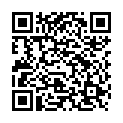|
|
|
| Module code: MST.RPR |
|
|
2V (2 hours per week) |
|
2 |
| Semester: according to optional course list |
| Mandatory course: no |
Language of instruction:
German |
Assessment:
Presentation
[updated 05.10.2020]
|
KI520 Computer Science and Communication Systems, Bachelor, ASPO 01.10.2014
, semester 5, mandatory course
MST.RPR (P222-0038) Mechatronics and Sensor Technology, Bachelor, ASPO 01.10.2012
, optional course, non-technical
MST.RPR (P222-0038) Mechatronics and Sensor Technology, Bachelor, ASPO 01.10.2019
, optional course, non-technical
MST.RPR (P222-0038) Mechatronics and Sensor Technology, Bachelor, ASPO 01.10.2011
, optional course, non-technical
|
30 class hours (= 22.5 clock hours) over a 15-week period.
The total student study time is 60 hours (equivalent to 2 ECTS credits).
There are therefore 37.5 hours available for class preparation and follow-up work and exam preparation.
|
Recommended prerequisites (modules):
None.
|
Recommended as prerequisite for:
|
Module coordinator:
Dr. Peter Ludwig |
Lecturer: Dr. Peter Ludwig
[updated 01.10.2012]
|
Learning outcomes:
In this course, students will be introduced to the basics of rhetoric and presentation for technical professions and will be individually coached with regard to their verbal and non-verbal communication. The course is very practice and training-oriented. It offers a mixture of lectures, individual and team work and targeted individual training.
After successfully completing this course, students will have deepened, consolidated and expanded the following skills:
* Finding/strengthening their own style of communication
* Structuring and coordinating information
* Developing/strengthening their own rhetorical skills
* Assessing communication partners and situations
* Giving and receiving feedback
* Using presentation techniques effectively
[updated 05.10.2020]
|
Module content:
1. Principles of rhetoric and presentation
2. Planning a presentation (organization/check list)
3. Content concept (order/structuring information)
4. Rhetorical practice (stylistic devices/argumentation strategies)
5. Visualization concept (working with media, designing slides)
6. Procedure (structure, phase structure)
7. Individual training (promotion of verbal and non-verbal communication)
8. Dealing with disruptions (dealing with disruptions and conflicts)
[updated 05.10.2020]
|
Recommended or required reading:
[updated 05.10.2020]
|


